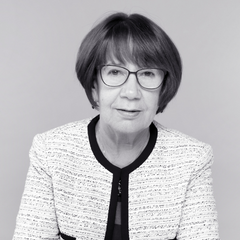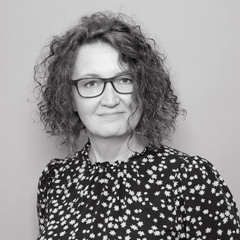Gastroenterology
A gastroenterologist deals with gastrointestinal problems (stomach, small intestine, large intestine, liver, biliary tract, and pancreas diseases).
Colonoscopy
Look for appointment timesColonoscopy is an examination of the lower part of the gastrointestinal tract that allows the entire colon to be examined with an endoscope. The examination helps the physician to find out the causes of the patient’s complaints and to find visible changes in the colon (polyps, tumors, inflammatory bowel disease, hemorrhoids). Colonoscopy is more informative for colon examination than radiological examination and allows biopsies to be collected or polyps to be removed during the procedure.
The treating physician can refer the patient to a colonoscopy examination.
Frequently asked questions
Preparations for colonoscopy begin a week before the planned examination. The colon must be empty of faeces for colonoscopy. Both a low-fibre diet and a laxative are used to empty the bowel.
Thorough bowel preparation is important so that the colonoscopy is as informative as possible and any changes in the intestine are visible.
- Iron supplements should be discontinued seven days prior to the procedure.
- The physician referring you to the examination has written a laxative prescription for you. Buy the medicine from the pharmacy at least four days before the procedure so that you still have time to contact your physician if the prescription has not been issued.
- Tell the physician referring you to the examination about your daily medications. Caution is advised with blood thinners (e.g. Marevan, Plavix, Xarelto) and, in some cases, diabetes medications.
- Daily medications should be taken as usual on the day of the examination. This is also the case with procedures under anaesthesia!
- Tell your physician about your allergies to medications and chronic illnesses.
- High-fibre foods should be removed from the menu four days prior to the examination: fruits, berries (small-seeded berries, grapes, kiwis), vegetables (tomatoes, cabbage, cucumbers), mushrooms, nuts, seeds, whole grains (porridge, bread, muesli).
- Suitable meals are, for example, cooked or steamed white fish, boiled chicken, dairy products, eggs, cheese, white bread, margarine, potatoes, wheat flour biscuits, pasta products, jelly, broth without vegetables, ice cream.
- On the morning the day before colonoscopy, you can have a light, non-fibre breakfast. For lunch you can eat a transparent piece of jelly, an ice lolly, transparent gummy sweets. You must then fast until colonoscopy. Drink plenty of fluids, for example herbal tea, water, mineral water, apple juice, lemonade, sports drinks. Avoid red-coloured drinks. Sugar can be added to tea in the event of weakness or malaise.
- At least 3-4 litres of water should be consumed the day before the examination.
- Dissolve the laxative in water according to the instructions on the packet (Fortrans, Eziclen, Cololyt, Moviprep, Picoprep) and taking into consideration whether the colonoscopy is performed before or after midday.
- Start bowel emptying in the afternoon of the day before the examination depending on the time of the procedure the next day.
- If the examination has been planned the next day before noon, the laxative should be taken in the afternoon of the day before, at around 14:00, and the entire laxative should be used on the same day.
- If the examination takes place after noon, divide the amount of laxative in half. This means that half of the laxative is drunk the night before, the other half in the early morning of the examination day, at least 4-5 hours before the procedure.
- Procedures under general anaesthesia are performed in the morning, i.e. no fluids (laxative or water) should be drunk on the morning of the examination day.
- The amount of laxative to be drunk is large (usually 2-4 litres) and the peculiar salty taste of the laxative can cause nausea and disgust. However, the whole amount of the laxative should be drunk. It may be helpful to drink the solution cold (such as adding ice cubes or adding lemon juice to change the taste).
If necessary, the patient can book an appointment or a telephone consultation with the endoscopy nurse to receive instructions on preparing for a colonoscopy. This is a paid service.
For the examination, you will be asked to undress your lower body and put on disposable examination pants. During the examination, you lie on your left side with your knees bent against your chest. The endoscope is inserted through the anus into the colon, and as the gut expands with water and CO2, we slowly begin to move the scope deeper into the bowel. Sometimes we ask the patient to change position during the procedure, which is painless and safe and helps to move the scope onwards from certain parts of the bowel more easily. If necessary, biopsies are taken during colonoscopy or polyps are removed and sent to the laboratory. Both procedures are painless.
After the procedure, you may feel a little abdominal pain or bloating, most complaints pass within a few hours.
The examination lasts for around 30 minutes and the patient can leave immediately after the procedure.
If necessary, with prior agreement, the procedure can be performed under general anaesthesia. In this case, the anaesthesiologist will inject you with a sedative medication before the examination. If the procedure is performed under anaesthesia, please familiarise yourself with the anaesthesia leaflet in advance. It is usually is sent to you with the booking confirmation letter.
If the examination is performed under anaesthesia, the patient will remain in the day care ward for observation for at least one hour. You should not drive a car on the same day, as the strong sedative given to you will significantly reduce your reaction speed. It is a good idea to bring an escort to the examination who will take care of your departure home. If you come to the procedure alone, order a taxi to take you home.
The physician will inform the patient of the results of the colonoscopy immediately after the examination. Histological examination results will arrive approximately two to three weeks after the examination and you will see the answers with the physician’s comments in your Patient Portal (digilugu.ee), unless otherwise agreed with the physician who performed the examination. If the patient was referred to colonoscopy by a GP, the histology results will go directly to the GP.
In the case of prolonged bloating, we recommend taking Espumisan.
Unless your physician provides other instructions, you can eat and drink immediately after the examination.
As the colon has been emptied the day before the study, there may be no need to defecate the next day and there is no need to worry.
The treating physician can refer the patient to a colonoscopy examination.
We provide this service
Price
Gastroenterologist consultation
Colonoscopy
Colonoscopy under anesthesia
Colonoscopy and gastroscopy
Colonoscopy under general anaesthesia (Tartu)
Gastroscopy and colonoscopy under general anaesthesia (Tartu)
We have several payment options. Read more HERE.
BOOKING
Attention! More information about Health Insurance Fund receptions here.
Colonoscopy




